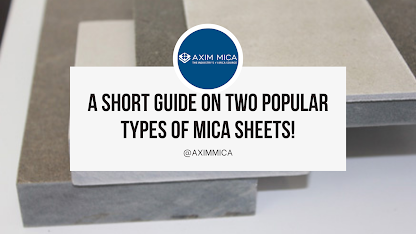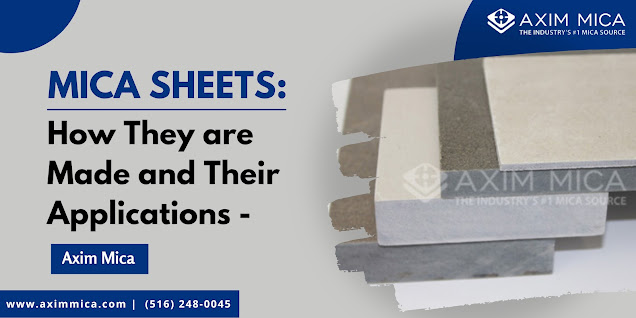How Can Mica Tubes Help With Electrical Insulation - Axim Mica
Understanding Mica Tubes
Mica
tubes are lightweight, durable, and combine electrical and mechanical strength.
They are rigid but adaptable and available in a range of lengths, diameters,
and thicknesses. As a result, it is easy and beneficial to use them for various
industrial applications. Here we are sharing more about the three uses of mica
tubes for electrical insulation.
· Electric Arc Furnaces
Mica
tubes help maintains a safe temperature in the electric arc furnaces to make
the melting operation smooth. Mica tubes are exceptional at both thermal and
electrical resistance, which makes them perfect for different insulating
components exposed to extreme temperatures. It is also used for insulating the
mast arms, electrode arms, and more.
- Electric
Components
High-quality
insulation is important to improve the durability and efficiency of electric
components. The exceptional mica properties like high
dielectric strength make mica suitable for electric components like capacitors,
resistors, and more.
- Tooling
Equipment
Tooling equipment is important for the daily operations of various industries. Mica help insulates heating elements which makes it ideal for using in these tools. Such as - heat guns can reach temperatures up to 648°C, so mica is used in them to provide a uniform heat distribution and improve performance.
Why
Choose Axim Mica’s Mica Tubes?
We hope this post helps you understand the various aspects of the mica tubes. If you need mica tubes for your industrial requirements, you can contact Axim Mica. Our mica tubes can withstand temperatures ranging from 130°C to 1000°C for high-temperature and high-voltage applications. In addition, our tubes meet NEMA standards and are suitable for all kinds of electric motors and electrical appliances, including electrical smelt furnaces. Furthermore, if you need extra-long tubes or have any other requirements for products like mica cable tape or mica washers feel free to reach us. We have your solution. Contact us to learn more!




Comments
Post a Comment